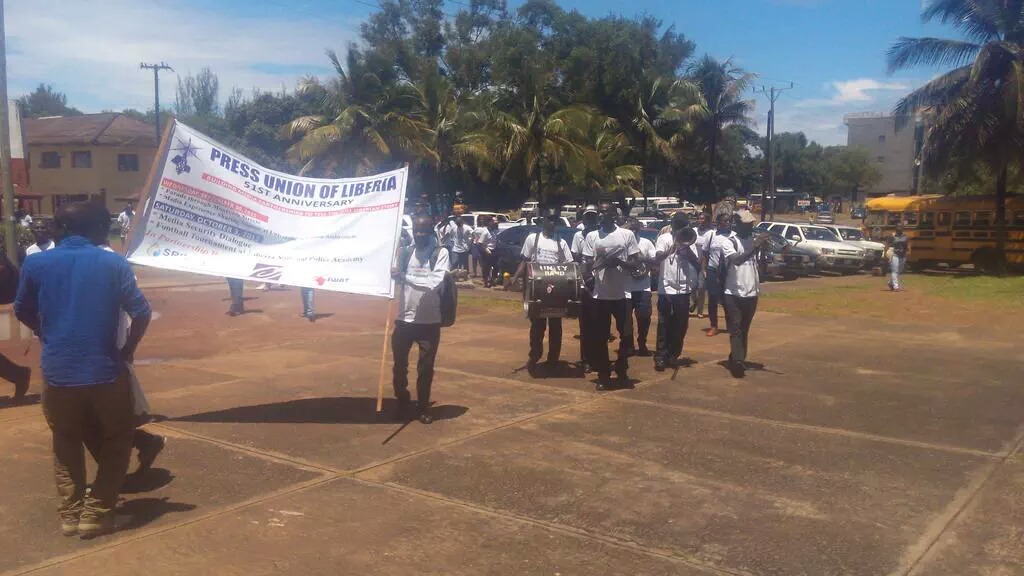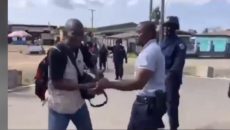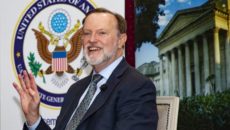MONROVIA, Montserrado – The Press Union of Liberia says the continuing silence of President George Weah on his recent outburst against BBC Liberia correspondent Jonathan Paye-layleh, accusing him of undercutting his fight for human rights, has forced the journalist to leave the country.
According to a PUL release, Paye-layleh confirmed to the union that he is currently in the U.S., both to seek medical check-up and to carefully study the situation of potential threats against him.
“My absence from Liberia at the moment is a combination of both a health check trip I had planned and the compelling need to get and stay out of the country for some time in the wake of the situation,†he reportedly wrote to the PUL in an email.
According to the email, the BBC reporter also disclosed to the union that he would have had time to inform the leadership before leaving the country, had the trip been only for medical reasons.
He said before leaving Liberia, the threat level had reached an alarming proportion, thus making the last days to his departure rushed.
“People began to link the misunderstanding to my coverage of the fourteen-year civil war, and there were veiled threats on my life over my coverage,†he added.
He clarified that even if the option will be deciding finally to settle somewhere outside of Liberia until his safety is guaranteed in the form of asylum, he would first return to the country to help his family with the decision.
On March 22, while responding to a question from Paye-layleh asking if his government would support a U.N. sponsored war crimes court in the country, the president accused the journalist of having been against him while Weah was advocating for human rights in Liberia, long before he became president.
The situation prompted the journalist to launch calls to the public, including the media community to help him seek clarification on the president’s accusation.
The Executive Mansion, in an attempt to provide the clarification, said as a “longtime champion of human rights and an ardent advocate of peace and social justice,†the president only sought to remind the BBC reporter that while he created awareness about human rights violations against the Liberian people during the country’s civil conflict, Paye-layleh and others “were bent on undermining his efforts by depicting a positive image of the carnage.â€
The statement appeared to have done little to resolve the issue.
Paye-layleh said he wondered why posing a simple question Weah could have chosen to answer or ignore has reached this current stage.
“And I am saddened that my appeals to many, including the first lady and the vice president, to use their motherly sensitivity to intervene in seeking an explanation from the president have not materialized to date,†he explained.
The Press Union said media executives in the country held a meeting on Thursday where they noted the disturbing trend of “threats, intimidations, and harassments†of journalists.
The union said Weah’s comments against the journalist and the following clarifications from his office had left the local media community susceptible to threats, intimidation, and harassment from officials of government and ordinary members of the Coalition for Democratic Change.
Weah won Liberia’s election by more than 61 percent of the total votes cast during the runoff election in the 2017 elections.
According to the union, prior to the president’s comment, different officials of the administration had already intensified what it termed as collective rage against the local media.
According to the statement, the media executives also said the president’s prolonged silence on the “unprovoked†slam on Paye-layleh could coward journalists into self-censorship, considering the president’s popularity. The press release said media executives called on the Press Union to alert the world that media in Liberia is returning to the dark era of dictatorship, similar to what was experienced during former President Charles Taylor’s rule.
The statement also noted that with the departure of UNMIL, the government remains the biggest player in the media economy.
“Institutions are barely surviving because of low activities in the national economy, coupled with intentions to strangulate the media through the withholding of adverts by some officials,†it added.
The Press Union, however, urged journalists and media institutions to remain professional in fearlessly reporting for the good of the state and its people.
Eugene Fahngon, the deputy information minister for public affairs, said the government has not yet received a notice on the reported fleeing of journalist Paye-Layleh.
Speaking at the Ministry’s press briefing on Thursday, Fahngon said the government would respond appropriately once it is duly notified. He said the government is not after anybody, including the BBC reporter in Liberia.
“Paye-Layleh clearly is speaking from a perception or a presumption, but this government will operate on facts,†he noted.
Featured photo by Brooks Marmon



